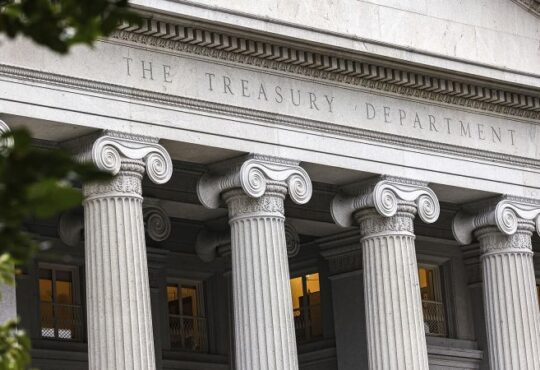
It’s time to get serious about stamp duty on shares, a terrible advert for London | Nils Pratley
Last year was another depressing one for departures from the London stock market. Back in January, it was Flutter heading for the exit. The owner of Paddy Power, Betfair and Sky Bet got itself a secondary listing in the US and said it would quickly convert it into the primary one, which it did in May.
When December arrived, we were still on the same theme. Ashtead Group, the £27bn construction rental company that has been listed in London since 1986, announced plans to shift its primary listing to New York. Other escapers include Just Eat Takeaway, which is off to Amsterdam.
None of these companies is departing on a whim, of course. Paddy Power says its US operation, FanDuel, will soon be its most important. Ashtead says it makes 98% of its profits in the US. Just Eat says it just wants to cut costs and the Netherlands is its corporate home. And, actually, the handful of companies moving their listings is tiny compared with the number that departed because they have been taken over.
But both trends add to the impression that the London stock market is a sleepy place from which more companies depart than arrive. That idea is borne out by the statistics for 2024: 19 companies joined the market, including 16 flotations or IPOs, and 88 delisted for various reasons.
Such a narrow measure can give a misleading picture of the stock market’s health, the LSE may reasonably object at this point. Success is also about the supply of fresh capital to established companies and, on that score, London did much better last year. About £24.3bn of equity capital was raised in 328 follow-on offerings, a figure that towers over the £766m from IPOs. In terms of total capital raised, the UK, the world’s sixth largest economy, was still beaten only by the US and India. Not bad.
Yet the shrinkage in the number of listed companies cannot simply be ignored, even if the same phenomenon has been happening in the US and elsewhere. Stock markets need a strong supply of new arrivals to create a sense of vitality. By the end of last year, the number of companies on London’s main market was 1,005, according to the LSE, so, at the current rate, the figure is likely to slip below 1,000 early in 2025 for the first time in decades.
It has happened despite reforms designed to boost London’s appeal. New listing rules last year gave companies more powers to bypass shareholder votes and adopt dual-class share structures beloved, in particular, by tech entrepreneurs. Planned reforms to the UK corporate governance code, which apply to main market companies, were revised to give them a more “pragmatic”, or pro-competitive, flavour. UK pension funds, the big net sellers of UK equities over the past two decades, are being urged from all directions to up their weightings in UK assets, public and private.
Yet, amid the mass of consultations and reports, one obvious measure is consistently pushed to the wings. It is reform of stamp duty on shares – or, in full, stamp duty reserve tax, or SDRT. It is the 0.5% levy on purchases of shares in UK companies. The US, China and Germany don’t impose any equivalent tax at all – and only Ireland, at 1%, has a higher rate.
Market-makers don’t pay, but stamp duty is a tax on both end-investors and companies, whose cost of capital is marginally higher than it would otherwise be. A report in from the Capital Markets Industry Taskforce spelled out the illogicality: “The UK currently taxes its retail investors with SDRT when buying a UK-listed Aston Martin share but not when buying a German-listed Porsche share or US-listed Tesla share.”
after newsletter promotion
The reluctance to cut or abolish is easily explained. The tax brought £3.8bn into the Treasury in the 2022-23 tax year, and a giveaway to rich savers – as critics may portray it – is a tricky political sell. But the government must know how companies see it. “Of course stamp duty will be a consideration,” says a chief executive of one UK-based private equity-backed company worth £20bn-ish, referring to the likely venue for an IPO in two or three years’ time.
The hard reality is that companies have choices about where to list. London still has many advantages as the active market for follow-on fundraising demonstrates. But if the government is serious in 2025 about reviving capital markets, of which the stock exchange is the most important, it is time to talk about stamp duty. It is terrible advertising for London.




